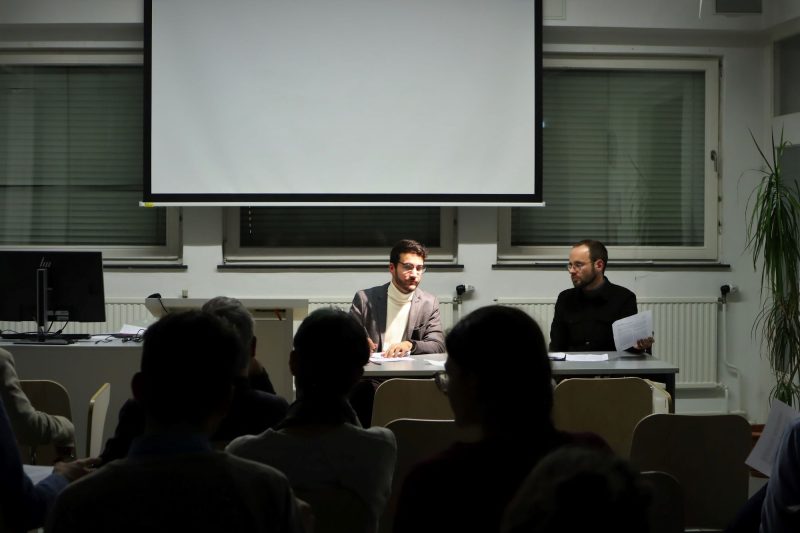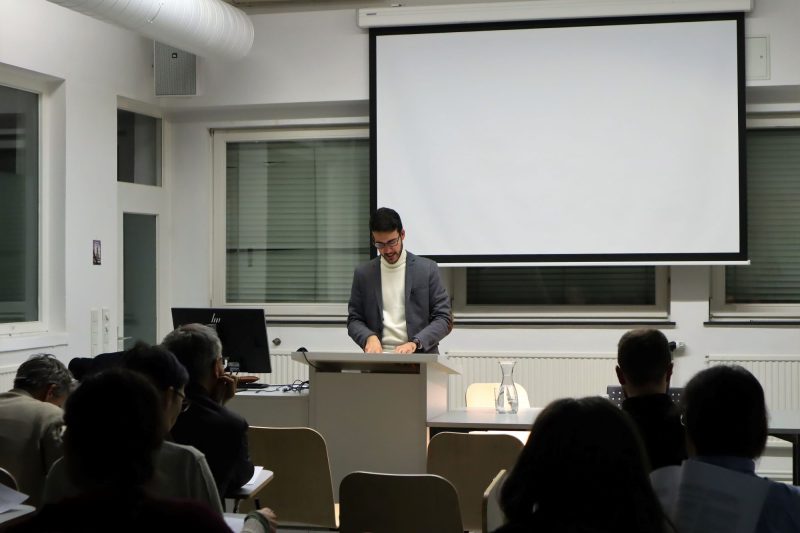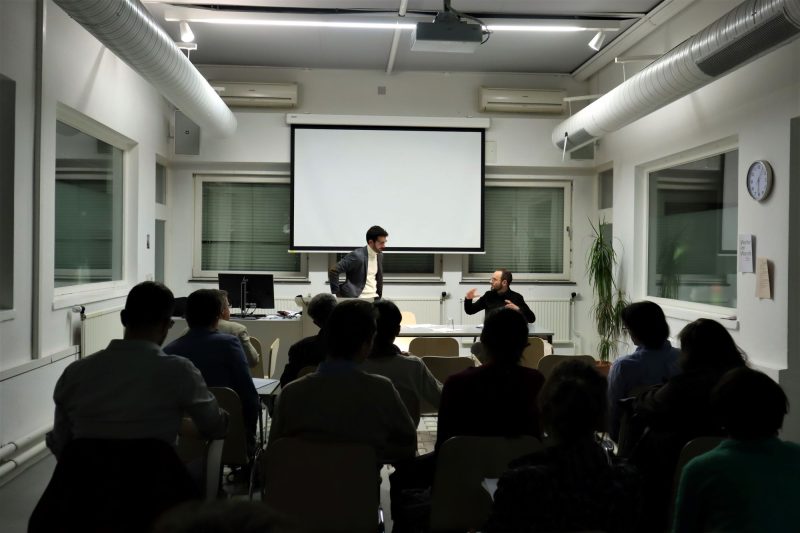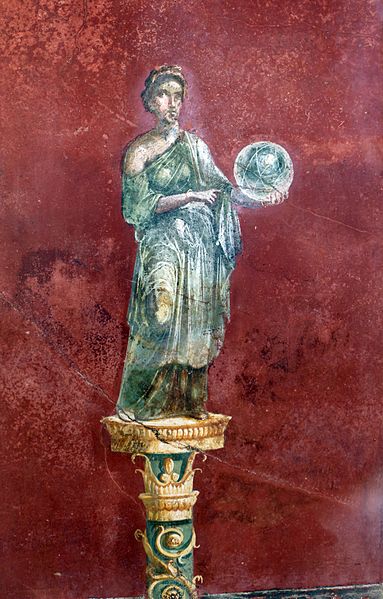Vortrag und Gespräch in der Reihe Wissenschaft und Kunst: Artes
Lecture and Talk with Leonardo Cazzadori (Padua): Science in Verse: The Art of Didactic Poetry in Antiquity
In the lecture series Artes, we are now going to address a paradigmatic literary genre between science, scholarship and art. Despite its popularity well into the 18th century, it has almost entirely disappeared from modern culture and is hardly known today: the didactic poem. Leonardo Cazzadori, a Classics scholar from Padua, will discuss his view of this once vibrant genre with us.
Towards the end of the Classical epoch, the Greeks began to compose didactic poems in increasing numbers. These poems, which continued to be quite successful in Rome, aim to present topics drawn not from myth, but from various fields of knowledge. This novelty of content results in a complex relationship between the poems and the concept of “art” in Antiquity (techne/ars).
To what extent, then, was a poem about snakes or constellations or farming considered artistic? What discourses about art and knowledge might the poems spark? Questions like these might yet provoke our imagination still today. They contribute to establishing novel perspectives on the charm and cultural meaning of didactic poems in the Greco-Roman world.
Lecture series: artes
In a loose sequence of smaller workshops and guest lectures, we attempt to profile the history of the concept and praxeology of the artes (artes liberales, artes hermeticae/magicae, artes mechanicae) from the Middle Ages to modern times. Subsequently, the focus is on the question of how the fields of knowledge once supervised by the artes have diverged into the ‘autonomous’ fields of ‘science’ and ‘art’. The epistemological interest is thus not only historical, but lies in accounting for the losses of this process, which is usually understood as responsible for the ’success story‘ of the modern era. What disciplines, ideologies, practices, worldviews have taken on those subjects that were considered neither capable of science nor art? Are there chances for the recovery of a concept of ‘art’ that could lead to a new formation of ‚arts‘ in the narrower as well as in the broader sense: ars vivendi/moriendi, art of education and art of healing (instead of a social-scientific or psychological pedagogy and a natural-scientific medicine), etc.?
Konzept & Moderation: Thomas Assinger
Bildnachweis: Fresko der Muse Urania. Palestra Grande di Pompei, Affreschi della Villa Romana di Moregine, primo Triclinio. https://commons.wikimedia.org.









